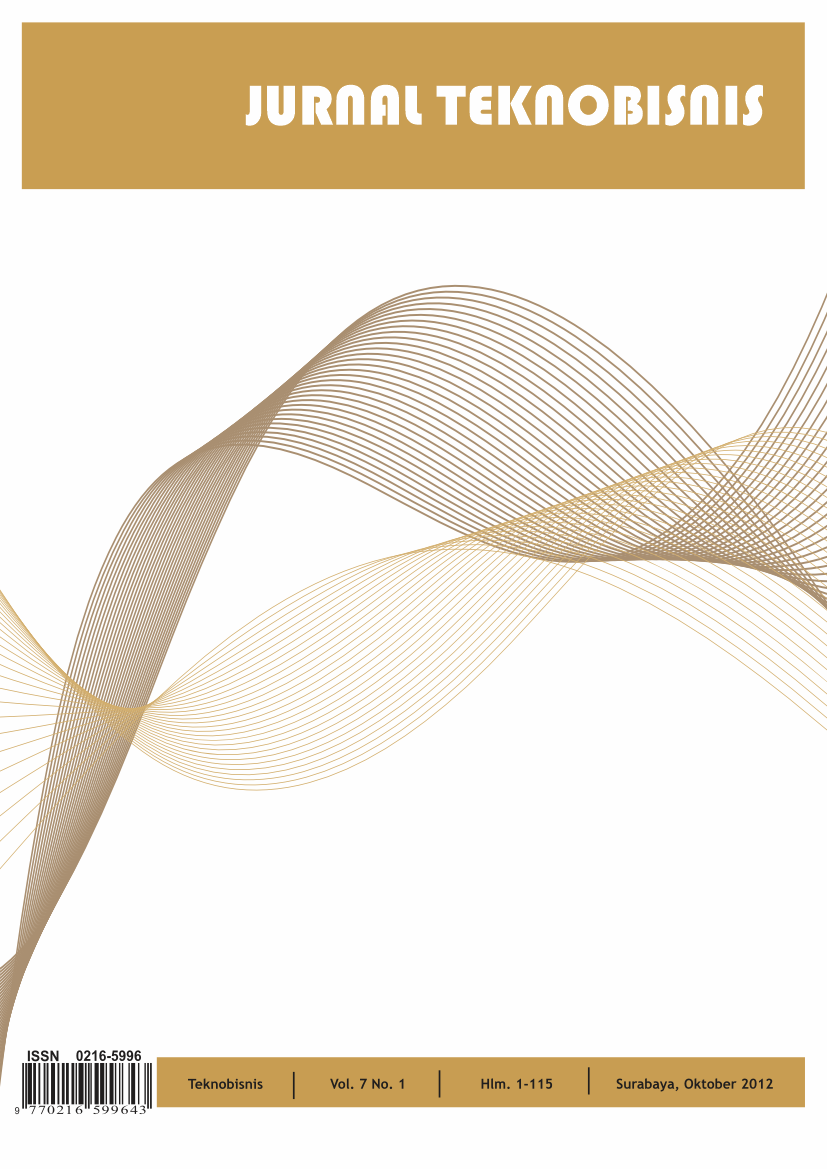QUICK ACCESS LINK
Publication Ethics
- Make sure that all submitted materials are devoid of plagiarism. Plagiarism, as defined by the U.S. Federal Policy on Research Misconduct, refers to using another person's ideas, processes, results, or words without giving proper credit.
- Submitting the same article to multiple journals simultaneously is widely recognized as a violation of ethical publishing standards. We would decline any manuscript submitted to Jurnal Teknobisnis if we discover that it is also being considered for evaluation in another journal.
- Confirm that all authors are informed about submissions, and the sequence of authorship has been collectively agreed upon. It's important to note that every author should have contributed to the manuscript being submitted. In line with the ICMJ Recommendation 2013, authorship for an article should comply to the following criteria:
- Substantial contributions to the conception or design of the work; or the acquisition, analysis, or interpretation of data for the work; AND
- Drafting the work or reviewing it critically for important intellectual content; AND
- Final approval of the version to be published; AND
- Agreement to be accountable for all aspects of the work in ensuring that questions related to the accuracy or integrity of any part of the work are appropriately investigated and resolved.
- Disputes related to authorship should be resolved among the authors prior to manuscript submission. Any changes to authorship subsequent to the initial submission must be communicated in writing before the final (accepted) manuscript is submitted. This document should be endorsed by all authors, including those who are being added or removed.
- If the paper is centered around an organizational case study, it is the responsibility of the authors to safeguard the confidentiality of identity and other organizational information, unless explicit written permission to disclose such information has been obtained from an authorized representative of the organization.
- Any complaint regarding published papers in Jurnal Teknobisnis will be addressed by the Editor-in-Chief, who will seek advice from the Board Members. The Editor-in-Chief holds the authority to withdraw the publication of an accepted manuscript or retract a published manuscript if any verified research misconduct is detected.
- Authors are welcome to suggest three or four potential reviewers. These reviewers should not have any conflicts of interest with the author(s), which means they shouldn't be from the same organization and should not have had close collaboration with the author(s) in the past.
- The editor may or may not invite the proposed reviewers to assess the manuscript.
- If the editor is a co-author of a paper submitted to Jurnal Teknobisnis, the review process must be overseen by another editor. Similarly, an editor should not handle the review of a paper authored by an individual working for the same organization as the editor.
- Whenever suitable, authors should acknowledge the source of funding in the acknowledgement section.






